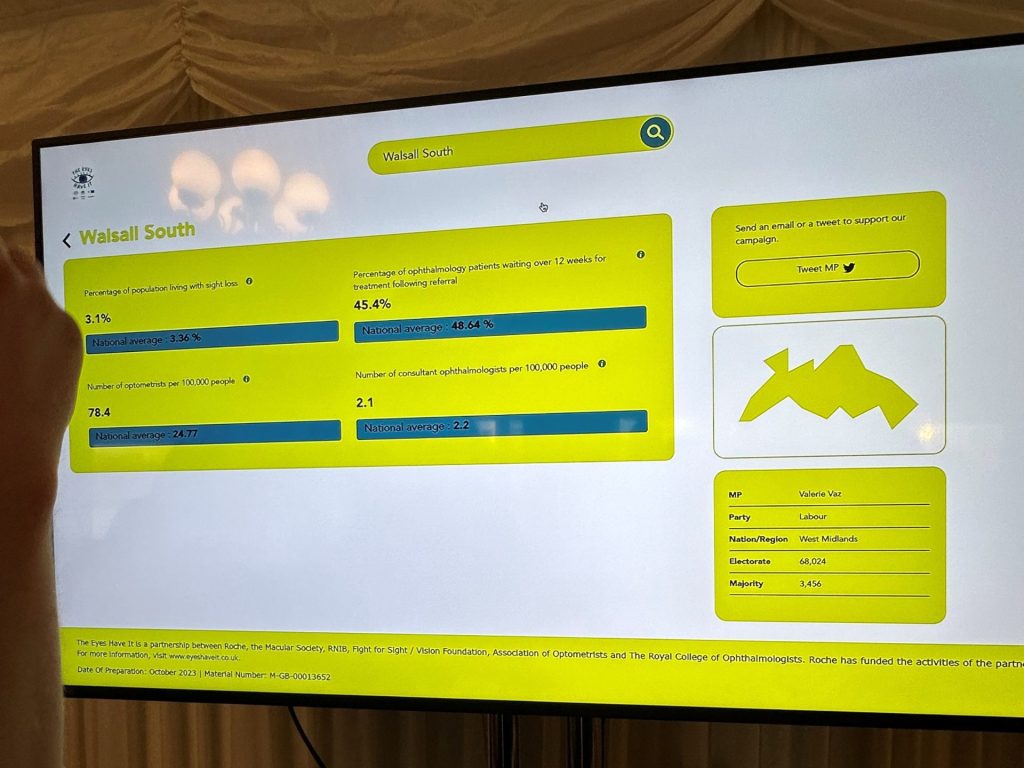- 11/12/2023
- Posted by: Valerie Vaz MP
- Category: News
On Monday 11 December 2023 I attended the “Eyes Have It” event in Parliament hosted by Marsha De Cordova Reed to launch a report setting out the key issues facing people affected by sight loss and the actions policymakers can take to overcome them.
The report includes recommendations across the following themes:
1. Data, connectivity and real world evidence
NHS England should work with commissioners, clinicians and industry to increase IT connectivity and digital clinical image interoperability within and between primary and secondary care providers through the deployment of a single, consistent mechanism for image sharing.
2. Prevention, diagnosis and early intervention in an integrated system
Integrated Care Partnerships (ICPs) should undertake an eye health needs assessment of the population – as part of Joint Strategic Needs Assessments – to feed into public health plans and inform local commissioning and pathway development.
3. Equity of access, support and patient empowerment throughout the patient pathway
ICBs should commission Eye Care Liaison Officers (ECLOs) and implement an eye care support pathway, providing consistent patient information, communications and support at all stages of the patient pathway.
4. Eye care workforce
Building on commitments in the NHS Long Term Workforce Plan, DHSC and NHS England should increase the number of ophthalmology specialty training places in line with current and future patient need and fully resource trainers to deliver this expanded programme.
5. Using new technologies and treatment models
NHS England should ensure the system has the necessary underlying infrastructure and processes in place to support consistent roll out and application of new technologies and treatment models across the country.
6. Investment into research for future treatments
Government should double funding for sight loss research, taking total public investment to at least £50 million per year by 2030 across the country (for common and rare diseases), and continuing to expand research funding sustainably thereafter.
7. Availability of treatments
Incorporating more up to date utility measures that recognise the value of preserving vision/stopping the deterioration of sight loss, both in its own right, and in terms of its impacts on social inclusion and comorbidities (e.g. fewer falls, better mental health and higher mobility).
Below are statistics about Walsall South:
Find out more by visiting: eyeshaveit.co.uk


